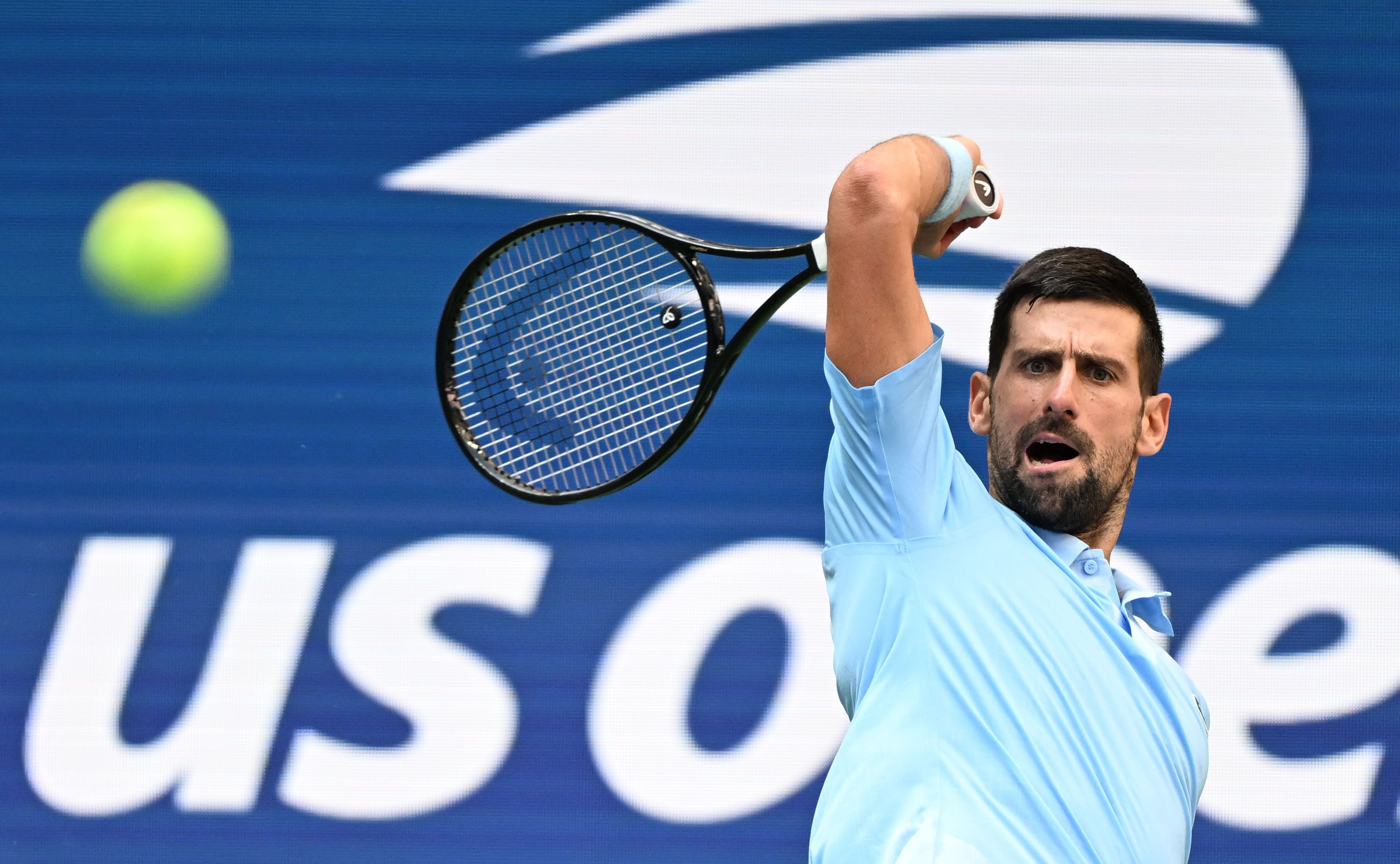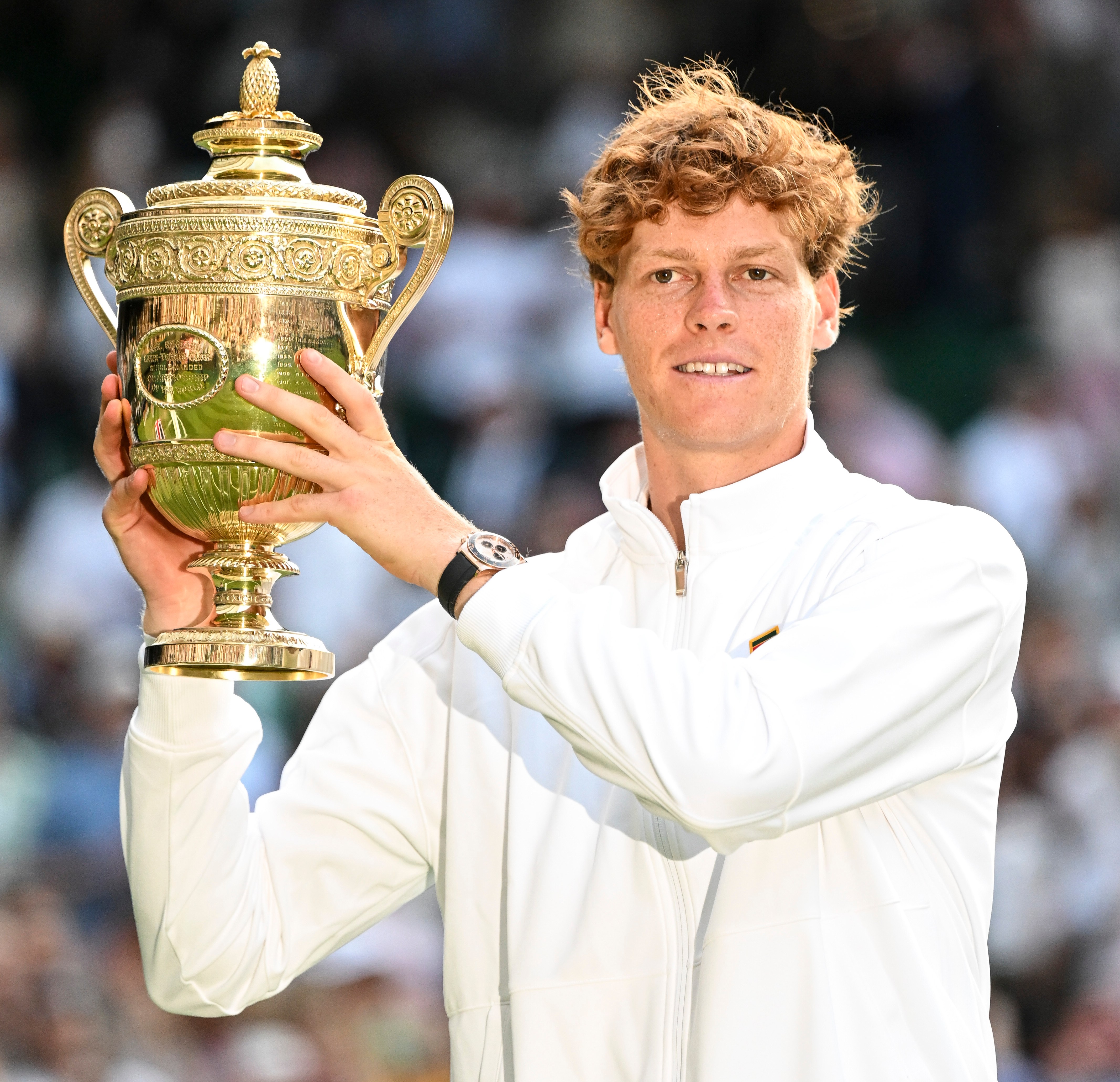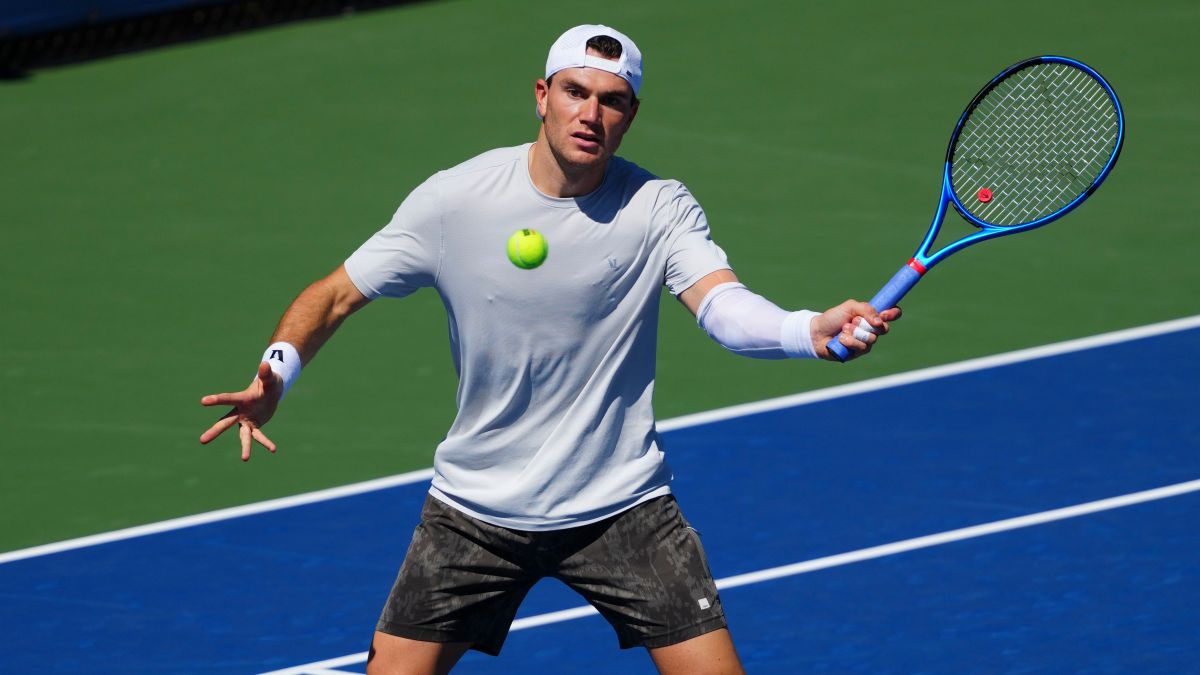Jack Draper has added his backing to calls for more prize money at the four grand-slam tournaments, including Wimbledon, as frustration grows amongst the world’s best players about the pace of discussions with tournament organisers.
In April it emerged that the top ten on both the men’s and women’s tours had come together to co-sign a letter demanding a greater share of the revenue at Wimbledon, the Australian Open, French Open and US Open. The letter also included requests for player welfare benefits, such as pension contributions, and increased consultation about decisions made on scheduling and rule changes.
Meetings between organisers and players were held during the summer at Roland Garros and Wimbledon, but no firm commitments were made by those representing the grand-slams. Instead it was communicated to the likes of Jannik Sinner and Aryna Sabalenka that there was a willingness to continue discussions over a longer period of time, while also considering wider reform to the tennis schedule.

Djokovic, the world No4, did not sign the letter sent in August
XINHUA/SHUTTERSTOCK
The lack of immediacy disappointed players to the extent that a second letter was sent in August repeating the original demands. This included the signature of the world No7 Draper, who had been ranked outside the top ten when the first letter was put together earlier in the year.
Novak Djokovic, the present world No4, is a notable absence from the signatories in August despite publicly repeating his wish for a rise in grand-slam prize money at the recent US Open. In recent months it has become clear that the 38-year-old is not as eager as he once was to be directly involved in off-court matters such as this, having also not offered his name to a separate lawsuit filed by the Professional Tennis Players’ Association against tennis’s governing bodies.
The main gist of the complaints is that the ratio of prize money to overall tournament revenue is too low at about 12 to 15 per cent across the four grand-slams — for the All England Club, for example, it was at 12.3 per cent in 2024 with prize money of £50million being offered from total revenue of £406.5million. The wish from players is for it to reach the 22 per cent share offered at some of the combined men’s and women’s tournaments on the ATP and WTA tours. In leading US team sports, such as the NBA and NFL, there is a collective bargaining agreement which commits about half of the league’s total revenue towards players’ salaries.
In recent weeks, however, there has been increasing unrest amongst players because of a perceived impasse. While it is far too early to even countenance the possibility of a boycott in the future, other options from here are now being explored by the players with advice from Larry Scott, an American sports administrator who has been hired to lead the lobbying.
It is expected that the first course of action will involve players becoming more publicly vocal on the matter in the coming weeks. In response, the All England Club, which runs Wimbledon, made clear on Wednesday that it was willing to continue meeting players throughout the season.
“Our position continues to be that we are always open to having constructive discussions to achieve the best possible outcome for the future success of our sport and for the benefit of our players and fans,” an All England Club spokesperson said. “We have been in regular dialogue with the players and their representatives to hear their feedback and these conversations will continue.”

Sinner won £3million as the men’s singles champion at Wimbledon this year
TIMES PHOTOGRAPHER MARC ASPLAND
Sources have also indicated that there remains a wish between the four grand-slams to develop a streamlined “Premium Tour”, which they believe would in itself address some of the complaints from players about finances and scheduling. Player facilities on site have also received large investment over the past decade.
The ongoing calls for more prize money come weeks after the US Open put up the largest prize-money pot in grand-slam history at £67.3million. This was a 39 per cent increase on the previous year, with the singles champions Sinner and Sabalenka each receiving £3.7million.
Wimbledon also increased its prize-money total to £53.5million this year, with the singles winners each receiving £3million. First-round losers were paid £66,000, which is part of a continual rise way above inflation — in 2011, those who fell at the first hurdle received £11,500.
Clearly this is not enough to satisfy the top players, who are more focused on the specific ratio of prize money to revenue. They are also attempting to secure contributions for the first time from the grand-slams to player welfare programmes such as pensions and health care, citing the £60million that the ATP and WTA collectively put towards these benefits through existing schemes on the tour.
Katie Boulter into China Open second round
Boulter stretches for a forehand during her victory against Baptiste on Wednesday
FRED LEE/GETTY
Katie Boulter claimed her first win against a top-80 opponent since Wimbledon by coming through a tough first-round test at the China Open.
The British No2, ranked No54 in the world, has struggled for form on the tour over the past two months. In individual events on the WTA Tour she had lost six of her past seven matches before this week.
With much relief, Boulter started her campaign in Beijing by overcoming America’s Hailey Baptiste 7-5, 5-7, 6-4. It sets up a second-round meeting with the Wimbledon and US Open runner-up Amanda Anisimova, who is the No3 seed in Beijing.
“I’ve had a tough couple of months,” Boulter said. “I’m really pleased with how I’m now putting myself out there and fighting for every point.

